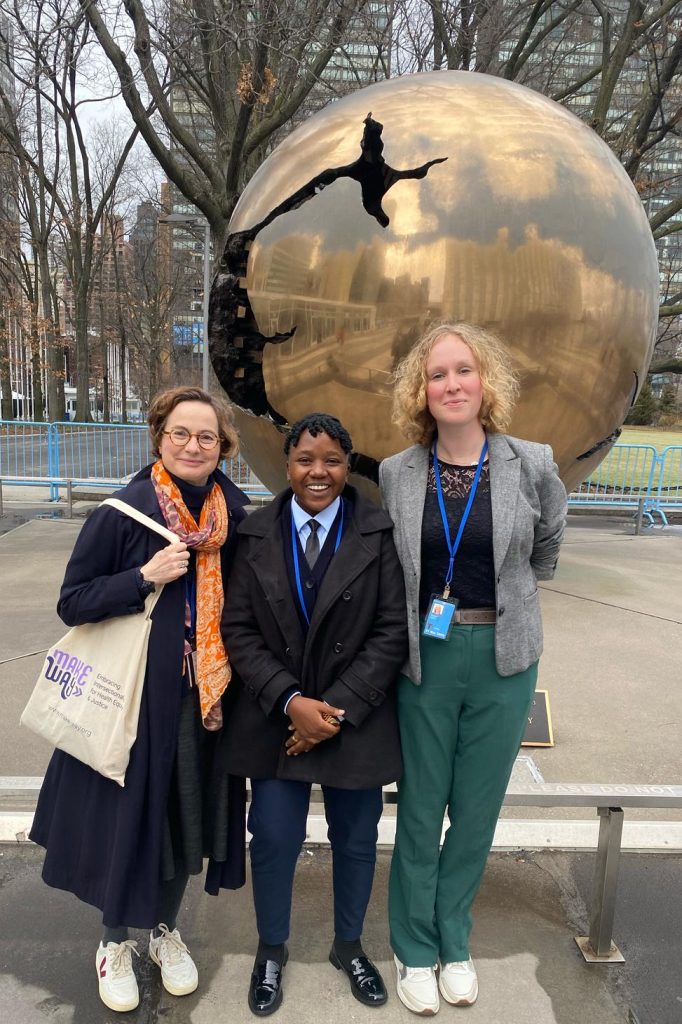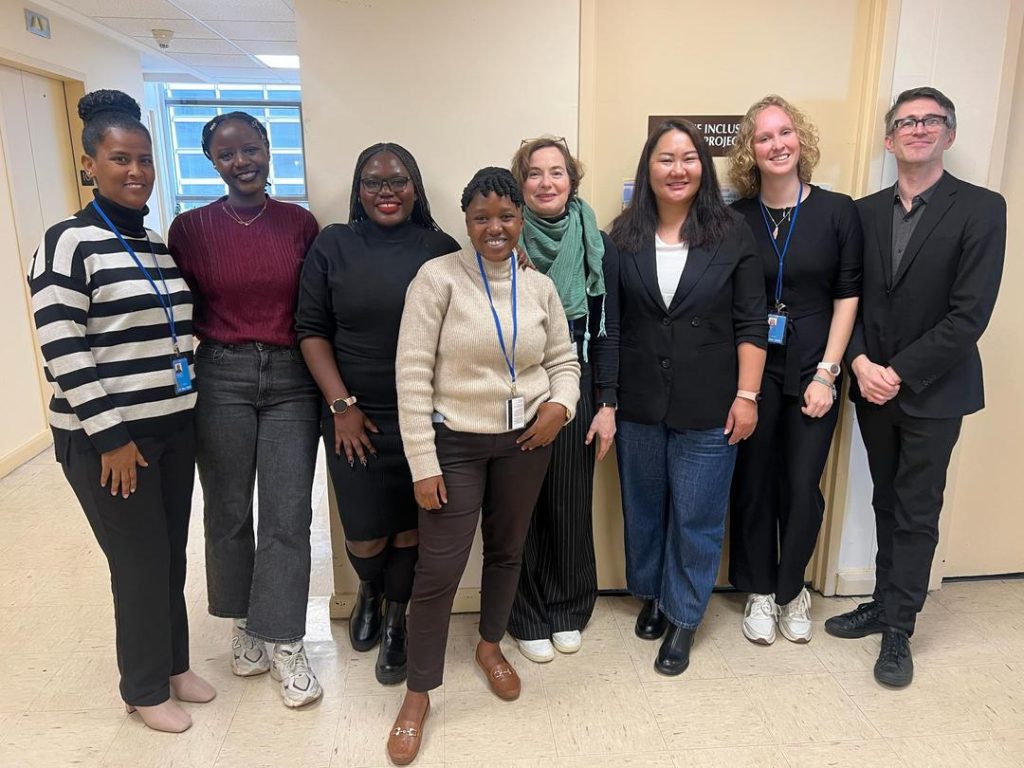Decolonising disability and queerness at the NGO Committee on the Status of Women
 11 April 2025
11 April 2025

Make Way recently attended this year’s NGO Committee on the Status of Women (NGO CSW) – a forum dedicated to the advancement of gender equality and the empowerment of women. As Make Way, we were honoured to host a parallel session titled ‘Decolonising disability and queerness in the realisation of the Beijing +30 Agenda’. In this article, we outline what the UN CSW and NGO CSW is, discuss current pushback on rights and gender and share insights from our Make Way session on decolonising disability and queerness.
What is the UN CSW69 and NGO CSW?
The 69th meeting of the UN’s Commission on the Status of Women (CSW 69) hosted from 10-21 March 2025 in New York marked the 30th anniversary of the Fourth World Conference on Women which took place in 1995 in Beijing, China. The Beijing Declaration and the Platform for Action that emerged from the conference were adopted unanimously by 189 countries and set the global agenda for women’s empowerment and gender equality. Alongside the CSW is a parallel civil society gathering called the NGO Committee on the Status of Women (NGO CSW).
Pushback on rights and gender
This year’s CSW took place under the rise of authoritarianism, the extreme right and anti-rights and anti-gender movements. Speaking to other attendees, we see the various domino effects taking place: Argentina’s Ministry of Women, Genders & Diversity has been dissolved, and a proposal would strike femicide from law. Bans on female genital cutting in Gambia, thought uncontroversial, have been questioned. The European Conservatives and Reformists Party are planning a “Make Europe Great Again” conference and there is a new civil society initiative called, “DOGE-UN”.
With these pushbacks, our work as civil society and fight for gender equality remains even more pertinent. Bearing this in mind, our session on decolonising disability and queerness offered a platform to dismantle the status quo and offer alternatives on how, together, we can effect transformative change.
Decolonising disability and queerness
Thirty years after the Beijing Declaration and Platform for Action, we see many women continue to face discrimination and marginalisation. This is why at our NGO CSW session ‘Decolonising disability and queerness in the realisation of the Beijing+30 Agenda’, we brought together queer women and women with disabilities to share their knowledge and experiences.
We were joined by a stellar panel of speakers:
- Precious Tricia Abwooli, Economic Justice Associate, Akina Mama wa Afrika
- Dulamsuren Jigjid, Executive Director, Culture Centre for the Deaf
- Nakigudde Hannah Margaret, Youth Representative, Make Way
- Tizita Hailu Workneh, SRH Program Manager, VSO Ethiopia
With moderation by:
- Mutyaba Gloria, Programs Director, Freedom and Roam Uganda (FARUG)
- Daphne Visser, Advocacy and SRHR Advisor, Liliane Fonds

The panel tackled how global health actors and Global Minority governments, organisations and legal frameworks continue to affect the autonomy of people who are queer or have a disability. We often think of decolonisation as the outcome of struggles for territory. We hardly ever discuss the links between colonial infrastructures, policies and laws and how they remain and have been re-branded as foundational structures for the majority of countries today. We shy away from openly acknowledging how these structures still permeate all of society, from schools, hospitals and churches to the media, police and the judiciary. And in so doing, we continue to impose the colonial imagination on the Global Majority.
Colonisation goes beyond physical oppression to deeper cultural and sociological erasure. We heard different experiences from the panel including being a young activist for LGBTQ+ rights during the passing of the Anti-Homosexuality Act (AHA) in Uganda and the strong communist influence in Mongolia and its negative implications on Mongolia’s approach to education, particularly for Deaf people.
We also dove into how disability and queerness are framed and how one of the most precious tools of resistance is language and telling our own stories. Storytelling is a means to own one’s future, while directly challenging Western systems of domination and making visible the lived experiences of the Global Majority.
To put an end to colonisation, we must respect and turn to local or indigenous knowledge and epistemic approaches and systems. We need to end the way that we are currently obtaining resources—in absence of fair compensation, at the price of human lives and health and in ways pushing planetary boundaries. We need to be respectful, transparent and accountable towards those we engage.
Key takeaways
We have many learnings from our time at the CSW, but the ones that stood out are:
- People with disabilities can experience extreme forms of social control that leave them drastically excluded from communities of other people with disabilities as well as from the broader community.
- Many forms of oppression that minoritized groups of people experience are directly linked or inherited from colonial legal frameworks, e.g. the Anti-Homosexuality Act (AHA) in Uganda.
- The Beijing Agenda is still relevant 30 years on, but for it to serve communities of the Global Majority it needs to frame rights from a more community oriented, ubuntu perspective. Ubuntu is a philosophy rooted in African traditions that emphasizes our shared humanity and interdependence -‘I am because we are’- placing community well-being at the heart of justice and rights.
- The Beijing Agenda promotes an economic model focused on growth. With the increasing severity of the climate crisis, the Agenda needs to reflect this new reality and respect planetary boundaries.
Let’s continue decolonising disability and queerness to build inclusive futures rooted in justice, dignity, and community! 🌍



